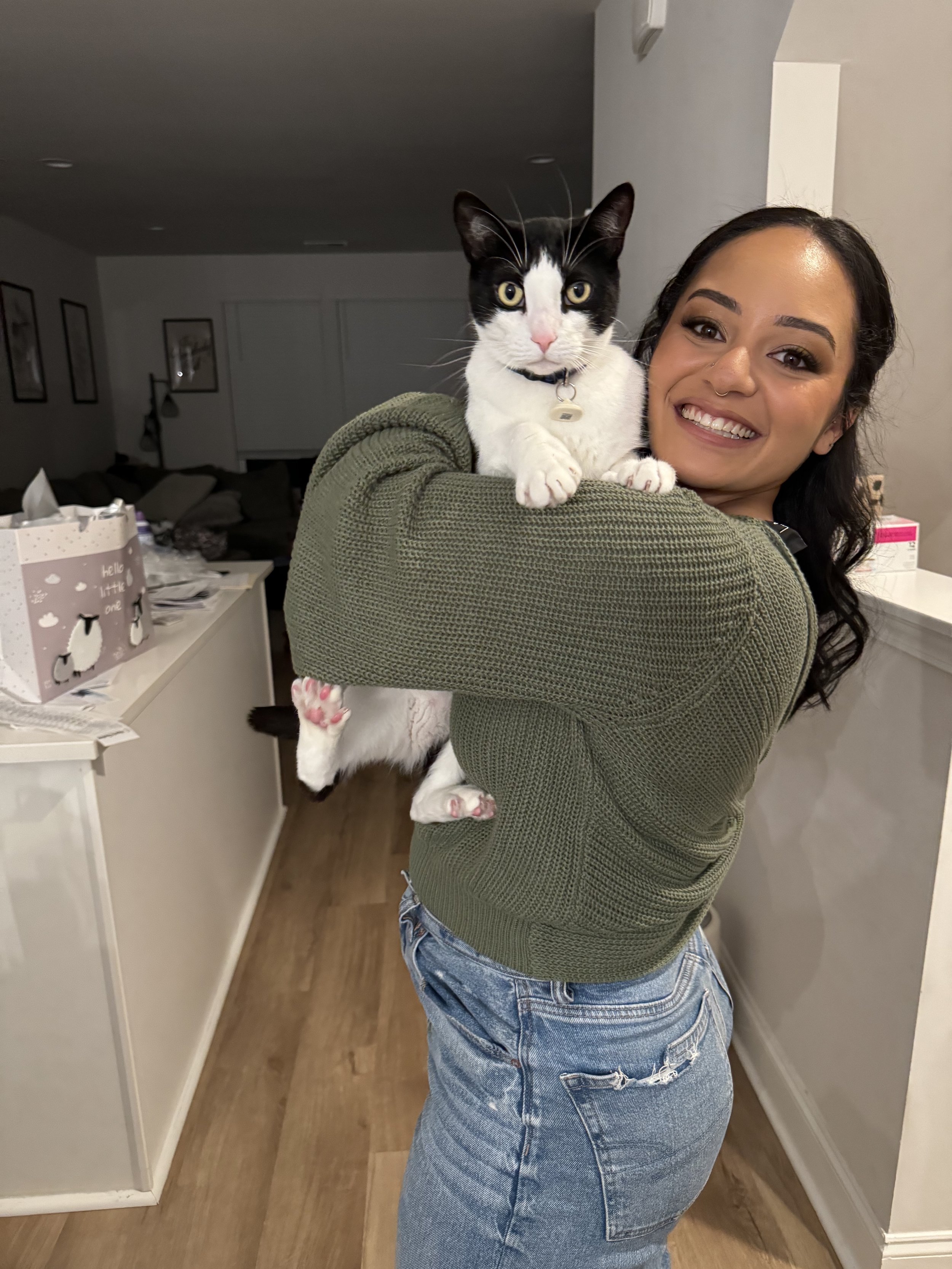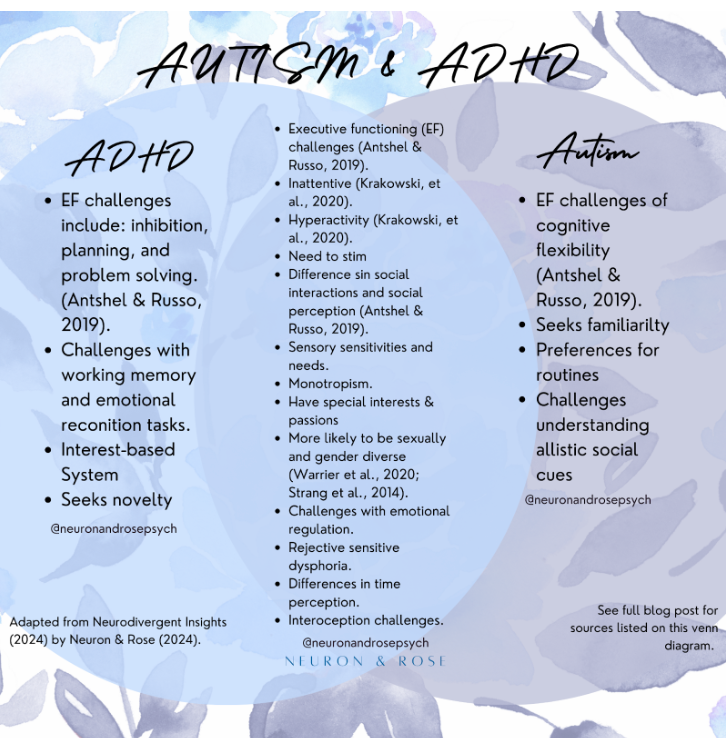
When the Boss Gets Bullied: What Happens When a ND Boss Gets Bullied by Neurotypical Employees
Going along with our blog series on neuroinclusive workplaces and being a neurodivergent (ND) boss, today we’re going to be discussing the experience of ND bosses who have been or are currently being bullied by their neurotypical (NT) employees. Finding resources on this specific topic is nearly nonexistent, not because this doesn’t occur, but because it is an understudied area that appears to be a bit niche at this moment. However, we hope to change this by adding one clear resource for neurodivergent bosses in similar situations to refer to. We also hope that in the coming years, research on the experiences of Autistic professionals will be more thoroughly explored, leading to a broader and more inclusive understanding.

The Social Function of Camouflaging and its Impact on the Mental Health of Autistic Individuals
Today we’re going to be revisiting the topic of camouflaging, looking specifically at two interesting recent studies. The first study conducted by Funawatari et al. (2024) examines the social function of camouflaging among Autistic individuals, looking at whether Autistic folks engage in camouflaging more towards neurotypical individuals than towards neurodivergent individuals. The second study by Khudiakova et al. (2024) similarly addresses camouflaging: this time by comparing the compensatory strategy with that of impression management, and in determining the impact of camouflaging on Autistic individuals’ mental health.

The Ballroom Scene in Wicked: A Relatable Moment for Autistic People
In the musical Wicked, the ballroom scene stands out as one of the most powerful and emotionally charged moments. For many autistic people, this scene resonates deeply, capturing the bittersweet hope of connection, the sting of misunderstanding, and the longing to be truly seen.

14 Tips for Surviving a Trump Presidency As a Neurodivergent Person (& Majority-Conservative republican congress)
Like many of us, you may be feeling disappointed with the election results. You may be feeling anxious, nervous or worried. You may be already experiencing the very real effects of having Trump elected into office again. If you are feeling happy with the election results - then this blog post is not for you.
For those in the camp of feeling unhappy, and concerned, then this blog post is for you.

Meet the clinician: Teresa Koro (She/They)
At our practice, we’re honored to have Teresa Koro (she/they) as part of our team. Teresa’s approach to therapy is rooted in compassion, authenticity, and an unwavering commitment to neurodiversity-affirming care. Whether you're seeking support for emotional regulation, exploring your authentic self, or navigating the intersection of personal growth and social justice, Teresa provides a space where clients can truly thrive. Here's a closer look at Teresa’s therapeutic approach…

Breaking down a recent study by Kentrou et al. (2024): Perceived misdiagnosis of psychiatric conditions in autistic adults
Today we are going to be talking about perceived misdiagnosis of psychiatric conditions among Autistic adults, looking specifically at a recent study conducted by Kentrou et al. (2024). You might remember a while back we did a blog on masking traits in young women and briefly touched upon how many Autistic individuals, in particular women, do not receive an Autism diagnosis until adulthood. While the previous blog covered one factor that might contribute to late diagnosis of Autism (i.e. masking/camouflaging), Kentrou et al. (2024) discuss another major factor which could contribute to late diagnosis, which is the misdiagnosis of psychiatric conditions.

Neurodiversity and the holidays (Fuck Expectations, Eat Cookies)
Best wishes during this holiday season, from the Neuron & Rose family 🤍And fuck conventionality: do what makes your ND heart happy. We love you as you are.

NEURODIVERGENT AFFIRMING CLINICIAN STARTER PACK:A STARTER PACK TO MAKING YOUR PRACTICE AFFIRMING FOR AUTISTIC FOLKS
So you want to be a neurodivergent affirming clinician? Super! This process of becoming a neurodivergent affirming (ND-affirming) clinician is continual processing of learning and growth. It requires a commitment to tolerating discomfort. It requires cultural humility; naming when you made an error, and committing to doing better. It requires that as you continue to learn, you commit to shifting your language & practices. This PDF is intended as a jumping off point.

Lauren Brown: Sharing Her Neurodivergent Journey on the PDA Voices Podcast
Lauren Brown, a dedicated and compassionate member of our administrative team, recently graced the PDA Voices Podcast to share her powerful story. As a late-diagnosed Autistic adult with a Pathological Demand Avoidance (PDA) profile and a mother to two neurodivergent (ND) children, Lauren’s perspective is rich with lived experiences, insightful reflections, and unwavering authenticity.

Neuroinclusive workplaces: What it means to be an inclusive, neurodivergent boss (Part III)
Join us for Part 3 of our series about Neuroinclusive Workplaces and Hiring! Today, we are chatting about accepting workplace changes at every stage–that is, prior to the hiring process, during the hiring process, and throughout employment–for ongoing support and workplace culture.

Neuroinclusive workplaces: What it means to be an inclusive, neurodivergent boss (Part II)
In discussing what it means to be an inclusive, neurodivergent boss- we first took a look at the steps to take prior to the hiring process. These steps included introspection and self-reflection, with respect to both business and personal worldview; considering and implementing accommodations; fostering a company culture which is affirming, anti-oppressive, anti-racist, and works to decolonize the workplace; and continued training and workshops. This week, we will turn our attention to the hiring process and steps to consider as a neurodivergent boss for fostering an inclusive, neuroaffirming workplace.

Neuroinclusive workplaces: What it means to be an inclusive, neurodivergent boss (Part I)
We hope that this first part of our series on neuroinclusive workplaces can be of help, especially for neurodivergent bosses that want to ensure not only their business, but also their personal worldview, is inclusive, neuroaffirming, and anti-racist and anti-oppressive. Come back next week for part two of this series, which will focus on the hiring process and important aspects to consider when onboarding.

What are Body-Focused Repetitive Behaviors (BFRBs) & are they a form of stimming
Join our clinician, Alex, as they explore Body-Focused Repetitive Behaviors (BFRBs) and stimming!

I Am Different: A Journey To Diagnosis, A Guest Blog By Alyssa Goodwine, MA, LCMHC, LPC
Welcome to a special guest blog about Alyssa Goodwine's Journey to Diagnosis in adulthood!

Autism and aging in middle-aged and older adults: An analysis of ‘Autistic adults experiences of aging’ (Aitken et al., 2024)
We’re back this week to break down a qualitative interview study by Aitken et al. (2024) that aims to understand the experiences of middle-aged and older autistic adults in aging.

AuDHD: Autism and ADHD sitting in a tree….
Picture this! There are kids on a playground, laughing, and giggling gleefully as a group gather around people double dutch jump roping. One of the children holding the ropes, invite two new kids in; “hmmm….” they say, looking around, “I choose Autism and….” continues looking around, “ahh yes, ADHD,” Autism looks around, confused, and asks quietly, “who, me!?” The jump rope holder, and seeming leader says, “yes you!! Go get ADHD, too!” Autism starts blushing, and thinks, I hardly get chosen for these things, oh boy, I feel nervous. Okay, ADHD, gotta find them, I thought I saw them on the monkey bars. Oh now they’re playing four square. Autism walks over, and says, “ADHD, you were chosen to double dutch.” ADHD, mid-toss, drops the ball, and says, “oooh I love double dutch,” grabbing Autism’s hand, and running back over. They ease their way into the rhythm, as the kids start singing in unison “Autism and ADHD sitting in a tree, k-i-s-s-i-n-g….”

Similarities, and differences between OCD, ADHD and Autism
Welcome back to our final post in our 3 part series on OCD, Autism, and ADHD overlap from our clinician, Alex McLaughlin!

Similarities, and differences between OCD and Autism
Come join us for the 2nd part of Alex's journey into OCD and co-occurring diagnoses! Today, Alex dives into OCD and Autism, as well as the trifecta of OCD, Autism, and ADHD!

What even is OCD? Hint: it's not Obsessive Christmas Disorder
Join our newest therapist, Alex, as they explore OCD and co-occurring diagnoses! Today, we will dive into OCD and ADHD overlap!

Why I still use CBT in therapy
Welcome to a special blog post from our newest therapist, Alex McLaughlin! Alex is working with clients ranging from early childhood to adults in Minnesota, both virtually and in person in Edina! Come read about why Alex still uses CBT in their practice and meet all the amazing CBT triangle graphics they created!

